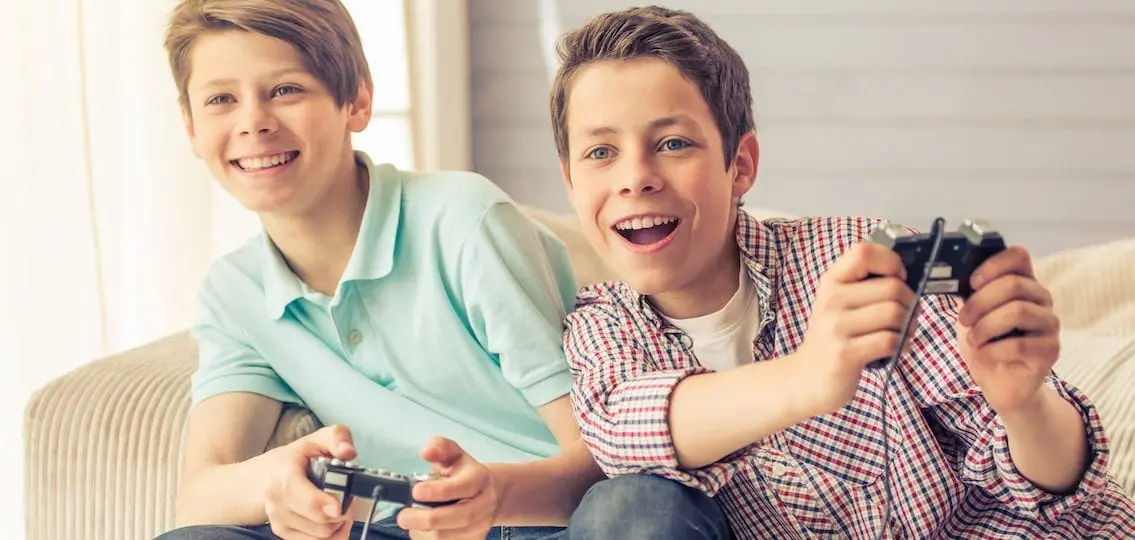I walked into a wall.
“How do I steer this thing?” I asked Nicholas, my 23-year-old son, thrusting the game controller at him. Patient though he was, as soon as he handed it back to me, I promptly smashed my avatar into another wall.
“I think I should stick with Ms. Pac Man.”
He kept trying to teach me, but it was very clear I was never going to conquer Final Fantasy XII.
My Boys and Video Games
As the mom of two sons who are avid gamers, I often poked my head into their rooms when they were playing, completely confused by the strange planets or alternate worlds they explored. I was also fascinated by the intricacies of the online universes and, as a writer, I admired the storytelling.
But I never thought video games were inherently bad for them. Like any type of entertainment, moderation is important. But I view my children’s interests as a chance to communicate with them, not shut them down.
Video games offer my sons a chance to meet people from places far removed from their own lives in the Virginia suburbs. My 13-year-old has an online friend who lives in a gang-ridden neighborhood on the South Side of Chicago and they have conversations online about their experiences. My son has also played video games with soldiers in Afghanistan and he has a British pal outside London.
I’ve discussed the risk of online predators and trolls, but if I let fear rule our lives, I’d never let my kids out the door. I ask about his online friends the same way I ask about his real-life friends and keep the lines of communication open.
Understanding The World of Boys and Gaming
Parents can lump all games as negative and dismiss them without really learning about their appeal. There is an extraordinary difference between a violent game like Grand Theft Auto, which is not appropriate for kids of any age, and the Katamari series, the Persona series, or Shadow of the Colossus. There are also many games, like the Professor Layton series, that are educational or centered around puzzle solving.
“I like RPGs (role-playing games), they’re story-driven,” Nicholas says. “You get into the character you’re playing, emotionally driven by their struggles.” Which sounds an awful lot like relating to characters in novels and on television and in movies — only it’s more immersive.
Video game graphics have improved over the years, so that they look more and more like cinema, creating richly detailed worlds, both familiar and new, for gamers to explore. For my youngest son, these worlds have encouraged him to learn more about World War II and Leonardo DaVinci, as well as giving him an appreciation for Big Band music. All of these interests came about because of video game elements that caught his attention. At the moment, he says he would like to go into the field of artificial intelligence — and I have no doubt the games he plays have made him curious about the future and where technology can go.
My Boys Teach Me Why They Love Video Games
As Nicholas says about the role-playing games he loves, “With RPG games you can spend 40 or 50 hours on them. It’s like taking your favorite TV show and putting all of the seasons in one episode and working toward one goal.”
Tech and storytelling in games are evolving. I see first-hand the positive influences of powerful storytelling, coupled with amazing graphics and concepts. And, like so much of parenting, it’s important to talk to our kids about their interests, like my son’s newfound interest in Big Band music. It’s enlightening to find out why my kids are drawn to certain games.
As for me, while my kids enjoy their strange, new worlds, I’m still trying to figure out how to avoid walking into walls.



